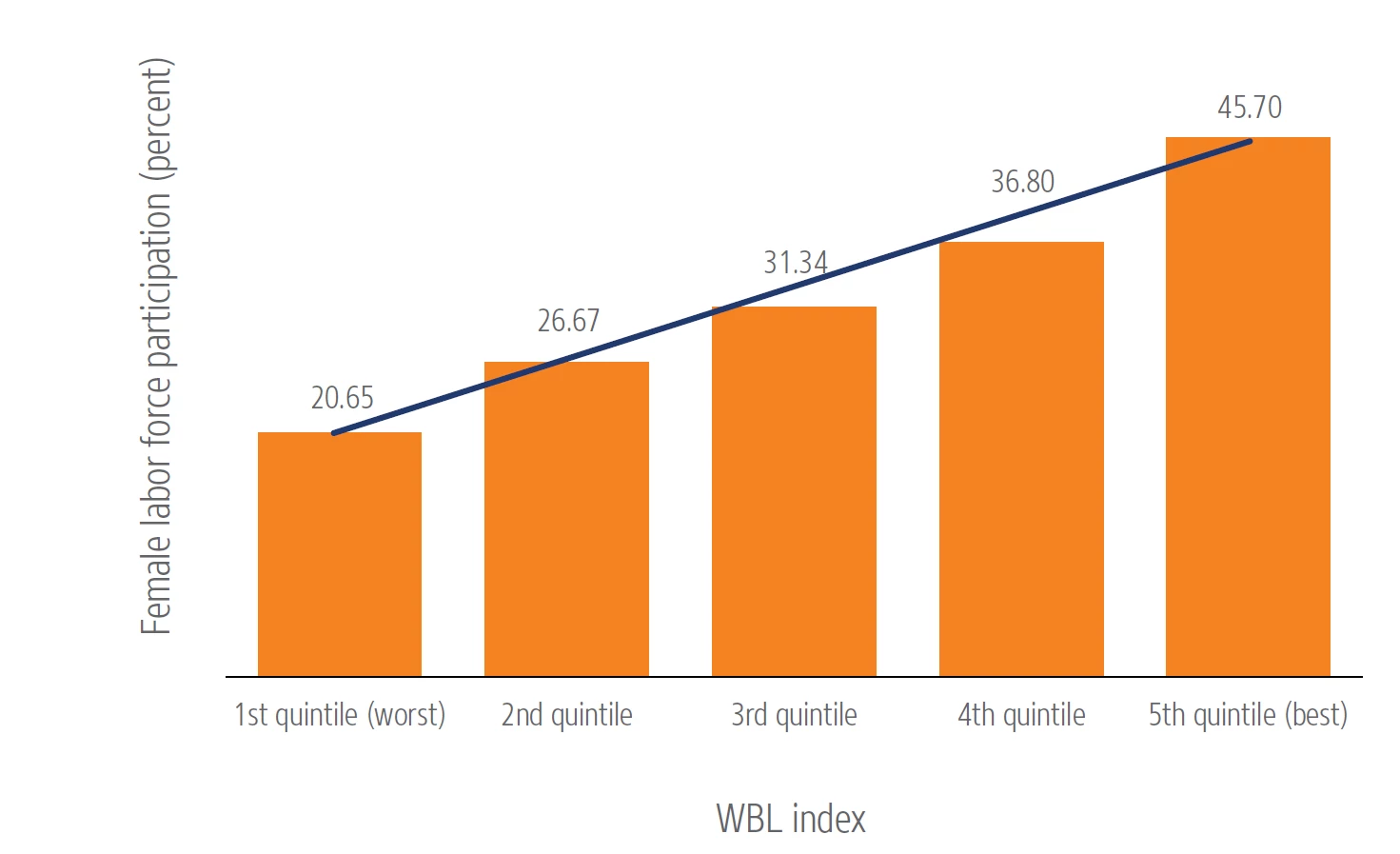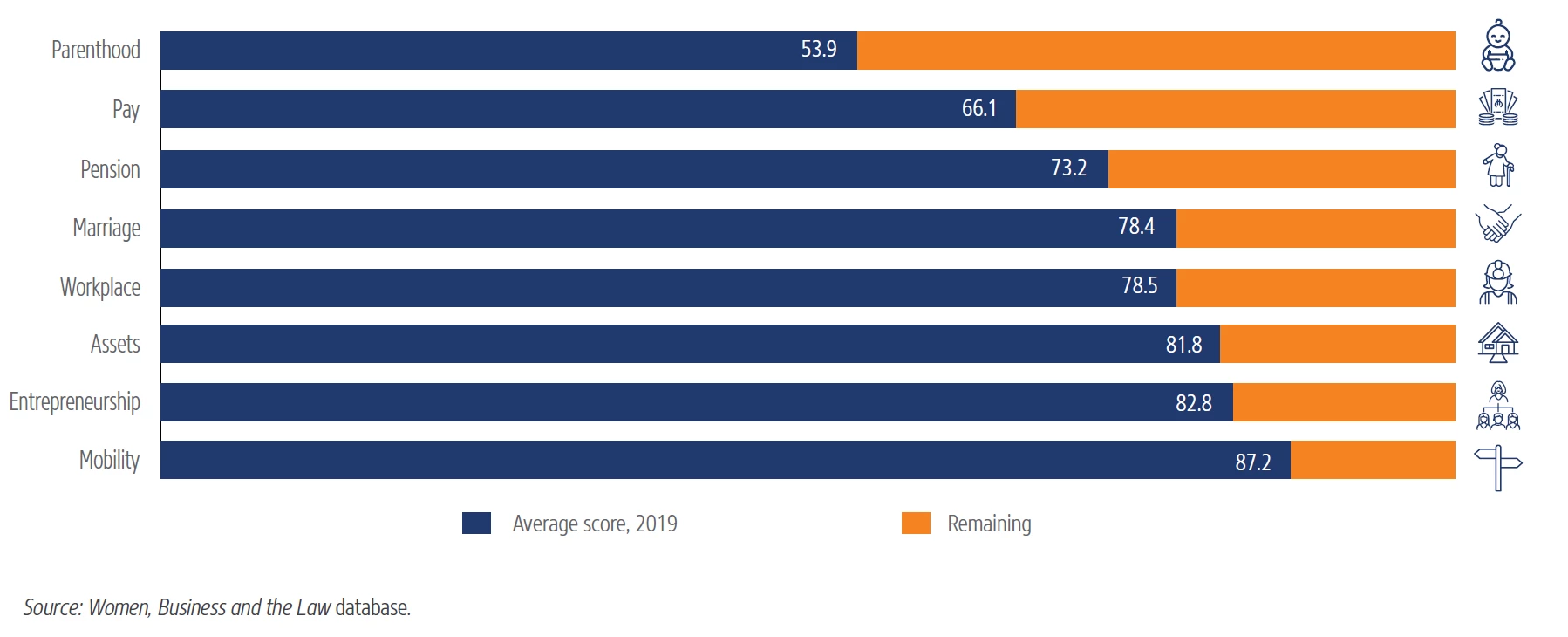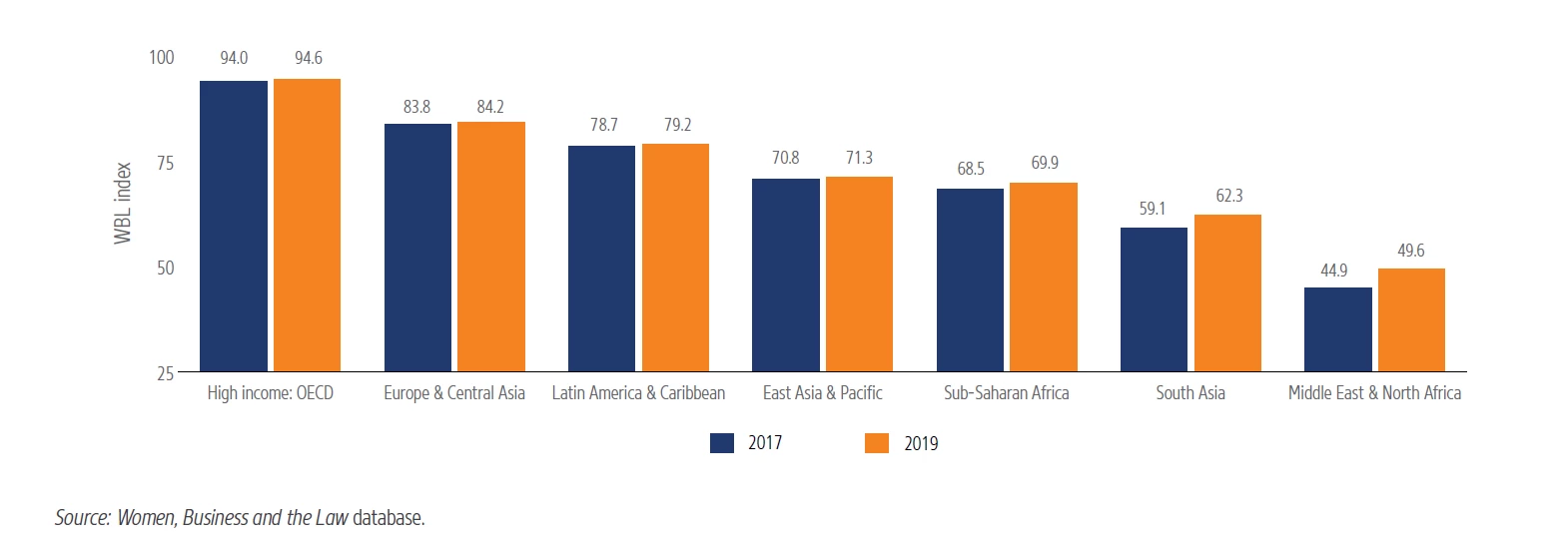 صلاح الدين نادر / البنك الدولي
صلاح الدين نادر / البنك الدولي
A woman in the hospital, about to give birth, receives a call from her employer. She is being dismissed from her job because her pregnancy is considered an “offense.” An autopsy surgeon is prohibited from continuing at her job after a new decree labels it inappropriate for women. A secretary is fired after confiding to colleagues that her boss is sexually harassing her.
Stories like this are all too common, affecting women at every stage of their working life and holding them back from economic opportunities. According to the World Bank’s Women, Business and the Law 2020 report published today, women still have just three-fourths the legal rights of men.
Laws matter for women’s economic inclusion. Although achieving gender equality is not a short-term process – requiring strong political will and a concerted effort by governments, civil society, international organizations among others – legal and regulatory reforms can play a foundational role as an important first step. And we know that better performance in the Women Business and the Law index is associated with more women working and with higher income and improved development outcomes.
Women, Business and the Law measures how laws and regulations affect women’s economic opportunity in 190 economies. The 2020 edition covers reforms conducted during a 2-year period ending in September 2019. The index analyzes economic rights during different milestones in a woman’s working life through eight indicators ranging from being able to move freely to rights in the workplace, when women get married and have children, how the law prevents or allows them to run their own businesses and manage assets all the way to retirement.
The global average score in 2019 is 75.2, up from 73.9 in 2017 but the overall pace of reform has been slow. Eight countries this year achieved a perfect score – Belgium, Canada, Denmark, France, Iceland, Latvia, Luxembourg, and Sweden. Canada joined the group by reforming parental leave. Reforms related to the indicator of Parenthood were the most popular, with 16 countries implementing some change to their maternity, paternity or parental leave policies. This is also the indicator that has the most room to improve. Reforms are urgently needed in the area of Parenthood, which scored just 53.8 on average.
Across the world, change is happening in the regions where it is needed most. 40 economies enacted 62 reforms, with the majority taking place in Middle East and North Africa and Sub-Saharan Africa. While there was considerable progress especially in improving women’s ability to enter and remain in the labor force, Middle East and North Africa remains the region with the lowest average score. In Africa, countries updated old laws from the 1950s and 1960s, and new labor codes were adopted in countries transitioning out of conflict.
The economies that improved the most on the index are Saudi Arabia, United Arab Emirates, Nepal, South Sudan, Sao Tome and Principe, Bahrain, Democratic Republic of Congo, Djibouti, Jordan and Tunisia – but there is still significant room for improvement in many of these countries. Thirty other economies implemented reforms in at least one area measured by Women, Business and the Law.
No country can achieve its full potential without the equal participation of women and men. Achieving gender equality is not only the right thing to do but it is also good for a country’s economic growth and development. The Women, Business and the Law 2020 report has examples of good practices and shines a light on what governments can do to improve women’s economic opportunities.
How can laws improve in your countries so that women have equality of opportunity when it comes to getting jobs and starting businesses? Find out more and tell us about your experience.
Additional resources:
Website: Women, Business and the Law
Report: Women, Business and the Law 2020







Join the Conversation